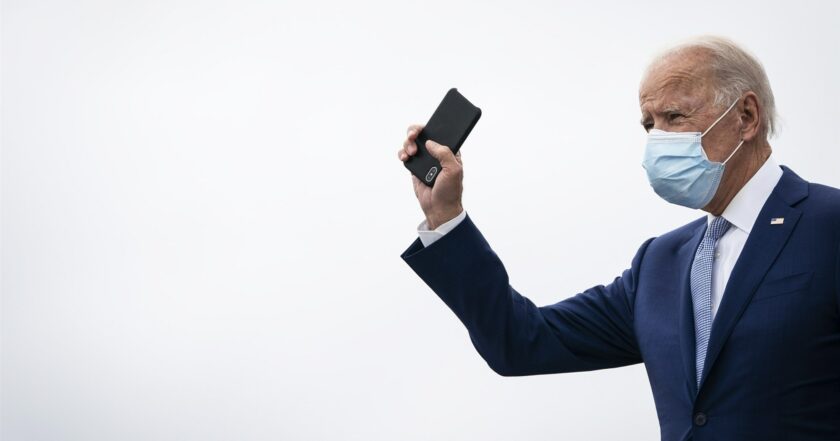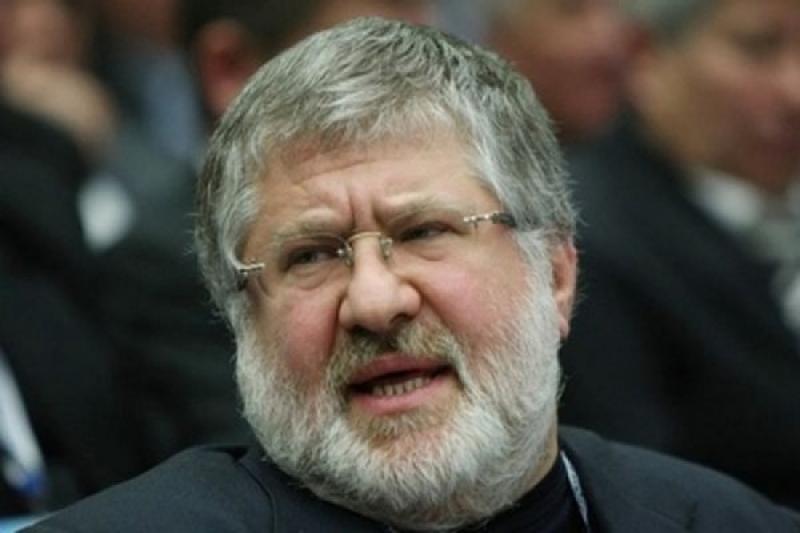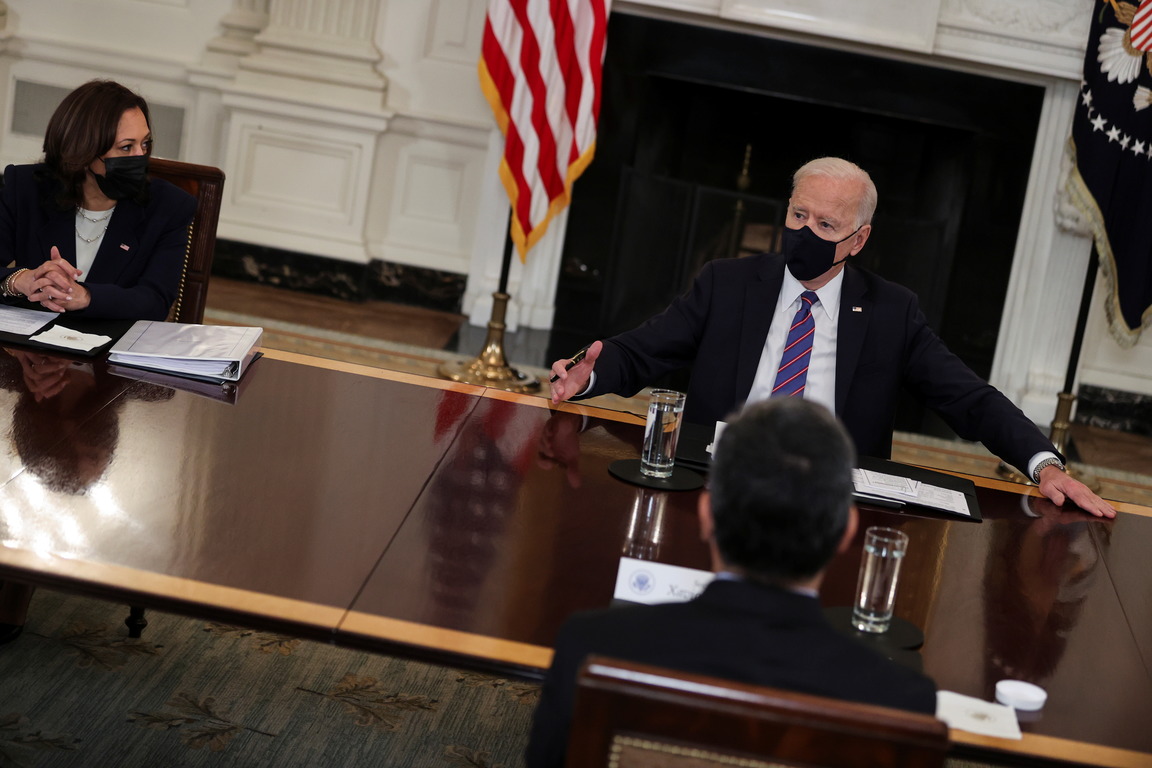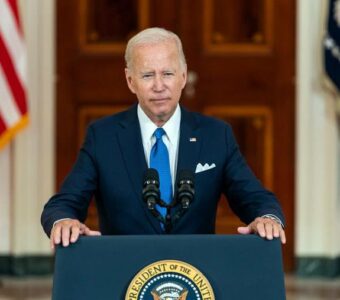Call from Washington and sanctions: what's happening in American-Ukrainian relations

Photo Getty Images
Sanctions against Ukrainian politicians, demands for judicial reform are no longer only the appeals at rallies under the President's Office, but also topics of Ukrainian-American relations. With Joe Biden arriving, the question of "what needs to be done to strengthen the friendship with the United States" became a hot topic.
Why exactly the oligarch Ihor Kolomoiskyi was punished with sanctions, what a telephone conversation of Ukrainian and American presidents has to do with it, and what actions Washington expects from Kyiv, find out in our material.
Ukraine was waiting for a call from Biden but received sanctions
"I'm announcing the public inclusion [to the sanctions list] of oligarch and former Ukrainian official Ihor Kolomoiskyi for his involvement in substantial corruption," a new series in American-Ukrainian relations began with a March 5 statement by US Secretary of State Antony Blinken.
So, Ihor Kolomoiskyi found himself sanctioned, but later it became evident: the blow didn't seem so large-scale. Blinken's statement shows that the entrepreneur, his wife, and children were punished with a visa ban on entering the United States. Moreover, a financier wouldn't travel to the States anyway: the FBI suspects him of laundering "Privat's" funds, so it may arrest him.
Meanwhile, Americans have a much more serious punishment "caliber" in their arsenal. For instance, the United States could blacklist Kolomoiskyi's entire business: then the Privat Group couldn't deal with Western banks or companies, for example, export ferroalloys, iron ore, or fertilizers to Europe (similar sanctions threatened companies involved in "Nord Stream-2"). A business catastrophe would come for Ihor Kolomoiskyi.
The reason for punishment is also mysterious. Officially, the reason for the sanctions is the entrepreneur's certain actions in 2014-2015, when he still headed the Dnipropetrovsk Regional State Administration. However, in 2015, Joe Biden himself held regular talks with Ukraine, when he didn't demand the punishment for the governor and oligarch. However, these sanctions aren't the first ones; earlier People's Deputies Andrii Derkach and Oleksandr Dubinskyi were subject to the same thing.
For our government, these sanctions may be special for two reasons
Volodymyr Zelenskyi didn't comment on the sanctions, but the Office of the President supports the Americans in word, saying "Ukraine is grateful to each partner for its support on the path of [de-oligarchization]." It may not be only on paper, because after that Prosecutor General Iryna Venedyktova finally signed the notices of suspicion for three more PrivatBank ex-officials during Kolomoiskyi's time. But the oligarch didn't comment on such measures.
Perhaps the news would've been on everyone's lips less, but it overlapped with another strange story: in two months in the White House, President Joe Biden didn't call Volodymyr Zelenskyi once (although he had already spoken to the leaders of 30 states).
Although Kurt Walker, the former US special envoy to Ukraine, assures that the Americans intend to hold such a conversation, the idea of the United States having claims against our country is repeatedly voiced in the media. Especially if we mention Kolomoiskyi's past ties with the Ze-Team (after all, the oligarch supported Zelenskyi in the election).
Ihor Kolomoiskyi could receive sanctions not for 2015, but for attempts to cause a quarrel between Zelenskyi and the West…
Sanctioned Ihor Kolomoiskyi found himself in the unexpected company of Iranian military and Chinese officials, also punished by the State Department. The Ukrainian oligarch, unlike them, is definitely not going to have a war with the United States. However, according to several politicians and experts, he's become almost the principal enemy of Ukraine's European integration (and it may not suit the United States).
"All this is somehow connected that Kolomoiskyi is taking another step towards destroying cooperation with the IMF. In fact, he needs to separate Ukraine from the Western world," the investment banker Serhii Fursa accuses the oligarch. According to this theory, the ex-owner of Privatbank deliberately pushes the acting Minister of Energy Yurii Vitrenko to wind down reforms in the gas market, and deputies associated with Kolomoiskyi to put pressure on the National Anti-Corruption Bureau.
Why is it so? Proponents of this version explain that if they provoke a break between Ukraine and the West, the International Monetary Fund, the European Union, and other organizations will eventually take offense and stop giving us money (demanding them in exchange for reforms). And then, without pressure from the West, Kolomoiskyi will easily make an agreement with Zelenskyi: for instance, he'll force NABU to close cases against Privat officials, or even regain the nationalized bank.
In short, "the personal and business interests of one person shouldn't prevail over the interests and future of 42 million Ukrainians," said MEP Viola von Cramon-Taubadel, who's supported by an entire group of MEPs. Therefore, it's easy to assume that the theory "Kolomoiskyi is a threat to Ukrainian reforms that Zelenskyi must fight" is also supported by the State Department (and it was he who received sanctions, not other oligarchs).
So the Americans imposed sanctions to prevent this
Hence the motive: why shouldn't Americans impose flashy sanctions? Not even to destroy Kolomoiskyi's business, but to create a "black mark," forcing the President's Office to turn away from its former ally. After all, the Ze-Team must understand well that if they stand up for a sanctioned oligarch, they can easily quarrel with the United States (and we still need political and military support in the fight against Russia).
According to former Prime Minister Oleksii Honcharuk, the "Boycott Kolomoiskyi" message is also addressed to his friends and business partners.
The United States has directly hinted to Volodymyr Zelenskyi that they're following the events in Ukraine, and if the president wants to be a friend of America, he must fight the oligarchs and the corruption system.
"It's a call from the United States to act. Zelenskyi has all the necessary tools to defeat the oligarchs, if he really wants to," Oleksandr Danyliuk, ex-head of the National Security and Defense Council of Ukraine, said.
However, another scenario is possible: the US is fighting for democracy, it also applies to Ukraine (and explains why Biden doesn't call)
Where some experts see a special political operation, others are willing to talk about "high politics." According to Aliona Hetmanchuk, Director of the New Europe Center, Biden's administration is now building a new "ideological platform" as the United States fights for "restoring democracy around the world."
Obviously, such a project should strengthen the positions of the United States in the international arena, unite allies, and give rise to criticism of Russia and China, where authoritarian regimes rule.
For example, the American leader wants to hold a world summit of democracies. It'd seem that it's not the case in Kyiv, there's definitely no dictatorship, but in our case, the evil №1 for Americans is corruption, for which Kolomoiskyi was punished.
"The United States makes it clear that the key and ultimate measure for Ukrainian politicians and civil servants is their ability to promote democratic processes and institutions (including anti-corruption ones), not to undermine them," Aliona Hetmanchuk writes, adding that from Americans' point of view, neither merit in the fight against Russia nor public declarations of love for the EU and NATO will justify "violators."
By the way, it may explain "why Joe Biden isn't calling Zelenskyi yet." Since the American president has declared a battle for democracy, it'd be logical to call Zelenskyi only after the Ukrainian leader takes some promising democratic and anti-corruption steps. In this way, the White House will show everyone what to do to become friends with the United States. "Zelenskyi needs tough love," a source close to the White House comments.
Interestingly, it's good news for Ukraine. If the United States is so closely following the political news in our country, then for Americans, we're indeed a potential ally, not just a barricade in Russia's path (democracy isn't necessary for such a role).
But what American-Ukrainian relations will look like first depends on our government
Since Volodymyr Zelenskyi supported the pro-European course, we can breathe a sigh of relief: we're not in danger of breaking the relationship with the United States. However, what it'll be, here the Americans have two scenarios that resemble the behavior of mobile service providers.
So, Biden's team has a "basic package." Regardless of the pace of reforms from the Ze-Team, the United States will support Ukraine as in previous years: it'll condemn the Russian occupation of Crimea and Donbas, maintain sanctions, and help us at diplomatic sites and with weapons. Washington doesn't blackmail Ukraine on these issues.
As if to prove it, on March 18, a group of congressional representatives from both parties registered a bill on military and political support for Ukraine. Meanwhile, Ukrainian Foreign Minister Dmytro Kuleba has already spoken to Antony Blinken, and Defense Minister Andrii Taran spoke by phone with Pentagon Chief Lloyd Austin.
But if we want a "premium option" of friendship with America–for example, for us to become an ally for the United States like Israel, for serious investors from the United States to come to Ukraine, and for Biden to lobby for Ukraine's accession to NATO right now– our government needs to change the country.
Evidence? On March 13, the influential newspaper, Washington Post, published a column calling on Zelenskyi to be friends with Biden and fight the oligarchs. Politico wrote about it on the same day, and it all sounds like a hint from Washington.
How exactly should Volodymyr Zelenskyi win the trust of American partners? Believe it or not, the WP article has a list of tasks. For example, the president should "push" judicial reform, protect NABU from attempts to weaken it (how can we not mention the attempts of deputies and government officials to get rid of the head of the bureau Artem Sytnyk and control the election of a new director?). The column authors also hope for "restoration of the National Bank's independence." And, of course, for Americans, reforms in the military field and the Security Service are essential, even if this article doesn't talk about them.
But the task "for now" is still connected with the Privat Group owner. "He [Zelenskyi] must definitely break up with Mr. Kolomoiskyi and support the criminal charges against him," the authors expressly wrote in the article.
However, the reform plan will be a real political challenge for the Ukrainian president. After all, now, according to investigative journalists, the Ze-Team has established peaceful business relations with the group of oligarch Rinat Akhmetov and with Dmytro Firtash's entourage, and Ihor Kolomoiskyi can still influence part of the "Servants of the People" party. The course of de-oligarchization will mean a conflict with all financial and political groups and the media under their control. So the question is whether Volodymyr Zelenskyi is ready for this.


























































